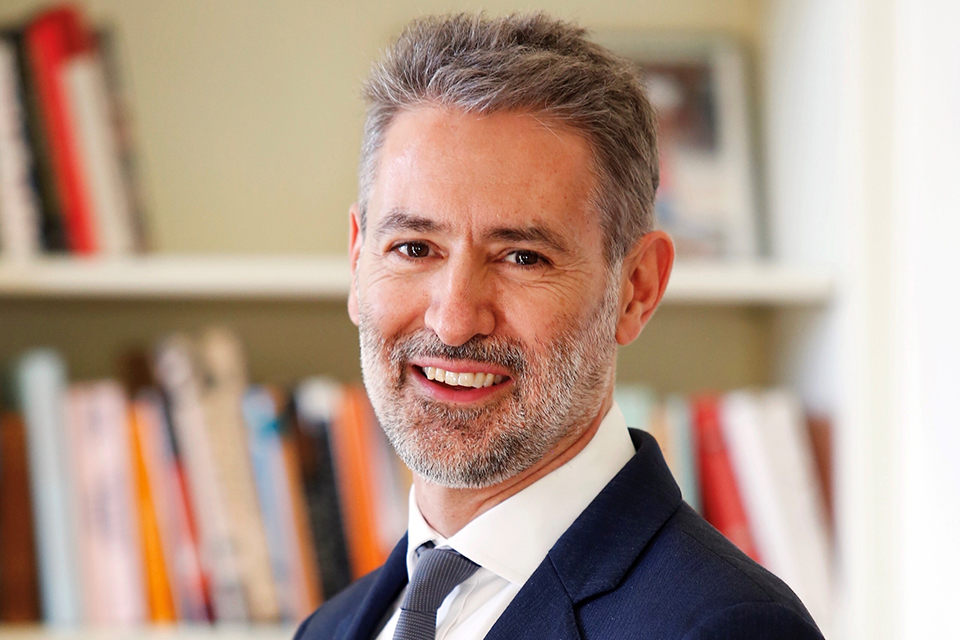UK statement for the 71st session of the UNHCR Executive Committee
The UK's Ambassador to the WTO and UN in Geneva, Julian Braithwaite, delivered this statement during the 71st session of the UNHCR Executive Committee

Thank you Chair. High Commissioner, Excellencies and distinguished delegates.
Can I start by offering you Chair our full support in these difficult circumstance and wish the High Commissioner and his colleagues a speedy recovery.
Let me begin by recognising the incredible commitment of UNHCR staff who, year after year, work in dangerous and challenging contexts to provide vital protection and support to the world’s most vulnerable people. We thank them for their incredible dedication. The UK is a committed partner of UNHCR, through funding and political support.
The COVID-19 pandemic is the biggest threat the world has faced in a generation. Evidence shows that its impact on health, economies, stability and society will hit the world’s most vulnerable countries the hardest. In this context, we appreciate UNHCR’s approach to stay and deliver and we understand the pressures this has put on UNHCR staff.
These challenges and an impending global food security emergency, are why the UK has launched a call to action on famine prevention, appointing the UK’s first Special Envoy for Famine Prevention and Humanitarian Affairs, Nick Dyer. We will use both our development and diplomatic levers to tackle famine. Urgent action is required now by the international community to mobilise funding, address access and protection issues, and deliver a strong coordinated response.
The UK is at the forefront of responding to refugee crises and forced displacement globally. Our pledge of over £1 billion UK aid to respond to COVID-19 includes support specifically targeted at forcibly displaced populations. This funding will also go towards countering health, humanitarian, and economic risks, and to support the global effort to find a vaccine.
Since 2012, the UK has provided more than £3.3 billion in response to the Syrian conflict and since August 2017 £256 million for the Rohingya crisis. The UK also continues to provide UNHCR with significant levels of multi-year and un-earmarked funding.
The Global Compact for Refugees has played a critical role in informing the international approach to both new and existing refugee crises, and provides principles and practices that underpin the COVID-19 response. The UK remains committed to playing our part in its implementation.
I would like to make three specific points:
First, we commend UNHCR for its ongoing commitment to organisational reform The UK strongly supports these efforts to become an even more effective and efficient organisation with coherent priorities, effective controls and transparent decision-making. The benefits of decentralisation and regionalisation are already being demonstrated through the ability of regional and country offices to act quickly in your COVID response. Deepening partnerships with international financial institutions and development actors have been vital and will provide financial support to host countries and communities. We encourage UNHCR to remain on this trajectory, and further strengthen engagement with the Private Sector.
Second, on COVID-19 and access to asylum – We note, with concern, UNHCR’s report that exceptional measures adopted in certain countries to manage the COVID-19 pandemic are closing avenues of asylum or forcing people to return to situations of danger. We are reassured that some States have successfully protected the right to asylum alongside managing the public health risk posed by COVID-19. UNHCR’s role in profiling and advising on good practice on meeting refugee protection obligations in the context of the pandemic is critical.
Third, on IDPs – We are very concerned that the highest ever number of IDPs was recorded at the end of 2019. We therefore hope results from the UN High Level Panel on Internally Displaced People will lead to improvements in the humanitarian and development architecture that enable a more effective response to the needs of IDPs.
Finally, I want to reiterate the UK’s continued support for the vital work of UNHCR in assisting, supporting, and saving the lives of the world’s forcibly displaced people. We will continue to play our part in helping you do the remarkable job that you do.
Thank you.